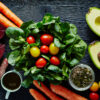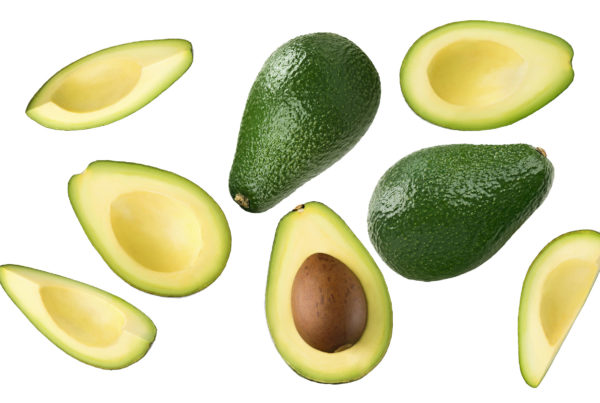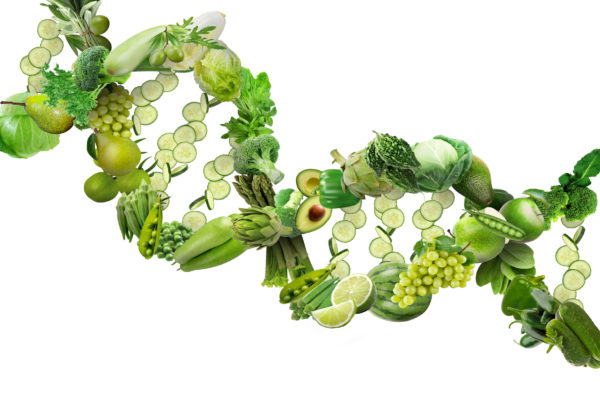”Indiana, do you ever feel overwhelmed with all the information on nutrition that's out there? It can be confusing to know what guidelines are actually useful. This week's article dispels some common nutrition myths. We hope you find this helpful!
Reading time: 10 Minutes
MWi Hacks:
- Find out what credible nutritionists are saying about certain food myths
- Implement new foods into your diet with a changed perspective on how they can improve your health
MWi Summary:
- There is a lot of confusing research around healthy eating.
- Common myths around food include “you need to cleanse or detox” and “eggs are bad for you”.
“Consuming 100 calories’ worth of cupcakes, soda, or French fries is not the same as eating 100 calories of vegetables or brown rice,” says Keri Glassman, R.D., a Women’s Health contributor.
One of the most frustrating things about healthy eating is all of the conflicting nutrition info you can find floating around. One study says that fats increase your disease risk—while other research suggests that it actually decreases your odds of getting certain ailments. It can get pretty confusing—which is why we asked several nutritionists to set the record straight on some of the biggest healthy-eating myths around. You’ll never fall for any of these whoppers again.
MYTH: FROZEN FRUITS AND VEGGIES ARE LESS NUTRITIOUS THAN FRESH ONES
“Frozen fruits and vegetables are flash-frozen within hours of being picked, locking in a majority of the nutrients,” says Joy Bauer, M.S., R.D., the nutrition and health expert for NBC’s TODAY Show and founder of NourishSnacks. She recommends taking advantage of fresh produce when you can—but keeping a stash of frozen produce on-hand for times when you’re in a rush or you can’t buy that item fresh because it’s not in-season.
MORE: 7 Ways to Eat More Veggies
MYTH: YOU NEED TO CLEANSE OR DETOX
MORE: 3 Common Detox Myths
MYTH: YOU HAVE TO COUNT CALORIES TO LOSE WEIGHT
“Consuming 100 calories’ worth of cupcakes, soda, or French fries is not the same as eating 100 calories of vegetables or brown rice,” says Keri Glassman, R.D., a Women’s Health contributor. “I tell clients to stop getting caught up in the number of calories and instead focus on where you are getting them from.” If you’re mindful and consume the vitamins and minerals your body needs, you’ll be able to drop pounds without becoming obsessive about calorie counting.
MORE: 6 Ways to Lose Weight That Don’t Involve Counting Calories
MYTH: ONE TYPE OF DIET IS BETTER THAN OTHERS
“The reality is we’re all individuals with unique needs, likes/dislikes, and intolerances,” says Katie Cavuto, M.S., R.D., the dietician for the Phillies and the Flyers. “We have to take time to listen to our bodies’ needs to truly determine what works for each of us.”
MORE: Mindful Eating: Clean (Up) Your Plate
MYTH: EATING FAT WILL MAKE YOU FAT
“According to abundant amounts of research, the opposite is true,” says Kirkpatrick. Granted, what kind of fat you’re eating makes a big difference. “Opt for healthy fats that promote cardiovascular health—monounsaturated and essential fatty acids,” suggests Glassman. Find out how much of each type of fat you should be consuming.
MYTH: A JUICE CLEANSE IS A GREAT WAY TO JUMPSTART YOUR METABOLISM
“While juicing is great because you’re getting a lot of vitamins and minerals, most commercial juices are void of protein,” says Bauer. “You need protein to rev your metabolism and help steady blood sugar.” If you really love to juice, only do it for one meal a day—and make sure to add a scoop of Greek yogurt or protein powder to your drink. And if you don’t love following a liquid diet, definitely don’t feel like you have to juice.
MORE: How a Fruit Juice Cleanse Affects Your Body
MYTH: EGGS ARE BAD FOR YOU
“I have so many clients come to me who are egg-phobic,” says Brooke Alpert, M.S., R.D., founder of B Nutritious. In reality, eggs are packed with nutrients; there are six grams of protein and five grams of fat in each one. “The combination of fat and protein promotes satiety,” says Michelle Davenport, Ph.D., R.D., a Silicon Valley nutritionist. And definitely don’t discard the yolk. “It’s full of essential fatty acids like DHA (for healthy brains!) and arachidonic acid,” says Davenport.
MYTH: EATING AFTER 6 P.M. CAUSES WEIGHT GAIN
“It doesn’t matter how late you eat, but rather what you eat,” say Keri Gans, R.D., author of The Small Change Diet. “If you eat more calories than your body needs, you will gain weight—even if dinner was at 5 p.m. The problem is, most people who eat late at night are starved and wind up overeating.”
MYTH: IT’S IMPORTANT TO EAT SEVERAL SMALL MEALS EACH DAY
Mitzi Dulan, R.D., author of The Pinterest Diet, recommends sticking with three meals per day and one snack. Why? “Eating five to six small meals can lead to unsatisfying meals,” she says. Also, when it feels like you never stop eating, it’s easy to take in too many calories.
MYTH: LOW- OR NO-CARB DIETS ARE GOOD FOR YOU
“Your brain needs carbs to function,” says Glassman. Granted, your brain doesn’t need refined carbs like white bread, pasta, candy, and cookies. The best sources of healthy carbohydrates are whole grains, veggies, and fruits. “What matters is where you get your carbs from,” says Glassman.
MWi would like to thank Robin Hilmantel for writing this article and supporting our community with her expert insights. Follow this link to read the original article:
https://www.womenshealthmag.com/food/a19988250/healthy-eating-myths/
About the author:
Robin Hilmantel is the digital director at Women’s Health, where she oversees the editorial strategy for WomensHealthMag.com and its social platforms. She has almost 10 years of experience writing and editing for national publications, and more than 8 years of experience writing and editing health, fitness, and nutrition content specifically. In addition to Women’s Health, her work has also appeared in TIME, Food Network Magazine, Cosmopolitan, New York Magazine, SELF, Glamour.com and other publications.






